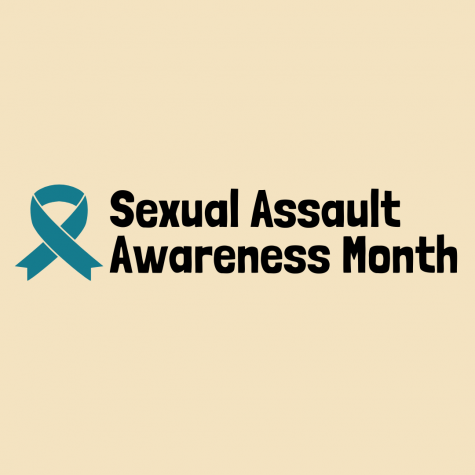Sexual Assault Awareness at Tulane must go beyond April

Throughout April, Sexual Assault Awareness Month, organizations such as Tulane’s Sexual Aggression Peer Hotline and Education, Undergraduate Student Government Sexual Violence Prevention and Response Committee and the Title IX office have held events around Tulane’s campus. One event included a resource fair to spread awareness of sexual assault and to support survivors. Outside of April, USG SVPR remains active on this pressing issue.
Director of USG SVPR Karlyn Simcox helped to host various events, such as a Sexual Violence Town Hall and various roundtable discussions “dedicated to Conduct/Title IX proceedings, intersectionality in sexual violence prevention and response, and sexual health.” Likewise, she and her committee have assisted students with hosting Sex Week at Tulane featuring associate professor Lisa Wade, an expert on hookups and pleasure, to discuss Tulane’s hookup culture and its possible implications with sexual violence.
“There is a degree of pressure felt by students to engage in hook[up] culture, even though the majority are not huge fans of it,” Tess Stroh, a student who says she has a passion for sexual violence prevention, said.
The hookup culture at Tulane has often been criticized as being too cavalier, impersonal or competitive. To combat this, Simcox calls for the recognition of sex positivity and healthy sexuality.
“Sex positivity and healthy sexuality give people the tools to ask for and receive consent and pleasure in a way that ignites positive relationships and sexual encounters,” Simcox said.
Likewise, Tulane invites criticism with its current dealings with sexual violence.
“OSC [Office of Student Conduct] has only one investigator that is fully trained in Title IX procedure, and this results in an overload of cases for this investigator that serves to benefit neither this investigator nor survivors,” Simcox said.
While Tulane has championed survivors by refusing to adhere to recent changes of Title IX, they do not have enough resources dedicated to provide a “trauma-informed” recourse for survivors. Tulane’s lack of staff who are professionally trained in Title IX and sexual violence conduct issues leaves little room for justice for survivors, furthering a lack of attention given towards accusations and unaddressed sexual violence on campus.
Furthermore, survivors are less likely to seek justice and come forward if they are not acknowledged while the same structures which suppress their voices remain. Kate Kushner, a member of SAPHE and USG SVPR, is working towards restorative justice programs at Tulane which would “would allow survivors to engage in facilitated conversations with respondents in a way that lends them a voice they did not have during an incident of sexual violence,” Simcox said.
“If Tulane was more sensitive in their response to accusations, as well as more prompt, there would be less hesitance towards speaking up,” Stroh said.
In 2017, Tulane’s Climate Survey on sexual violence and harrassment showed statistics which revealed grave issues concerning sexual violence in minority groups on campus. White women seemed to be more likely to experience sexual assault than their BIPOC counterparts, indicating incidences of underreporting. Jordan West, inaugural director of diversity and inclusion education at The George Washington University, conducted a study at Tulane to investigate the BIPOC experience regarding sexual violence.
“She reported these findings on April 22, 2020 and stated that sexual violence at Tulane was largely constructed as a ‘white student experience’ due to lack of trust, transparency, staffing, resources, and community space for students of color,” said Simcox. “In light of these findings she recommended that Tulane do five things: conduct a racial violence climate assessment, create a strategic plan for diversity, equity, and inclusion, create intentional spaces and dedicated resources for survivors of color, evaluate general hiring practices and protocol, and modify the Well’s staffing and services.”
Simcox indicated that the majority of these action steps have not yet been enacted by Tulane.
The LGBTQ population of Tulane also requires more resources to prevent sexual violence, as the Climate Survey revealed they were more vulnerable to sexual violence than their heterosexual counterparts. Tulane’s response to sexual violence necessitates an intersectionality that it currently lacks. Simcox stressed the acknowledgement of sexual violence as “a result of the power abusers seek to exert over others” which is reinforced by “systemic inequities such as racism, ableism, homophobia, sexism, and other discriminatory power structures.”
While sexual harassment and assault continues on Tulane’s campus and at other universities, organizations like USG SVPR do everything in their power to combat it. They can only do so much, however. The structures underlying the persistence of sexual violence, enforced by regressive politics, such as the recent Minnesota Supreme Court bill, and by campus administrations which lack the support and action which uplift survivors, are responsible for the epidemic that is sexual violence.
Your donation will support the student journalists of Tulane University. Your contribution will allow us to purchase equipment and cover our annual website hosting costs.




Anon • May 2, 2021 at 9:08 am
You incorrectly credited the planned and coordination of Sex Week to the USG SVPR Committee. Sex week was planned by Senior Sex Week Coordinator Kate Kushner, Sex Week Coordinator Teigen Johnson, and Assistant Director Jennifer Hunt under the Well for health promotion. These events are separate from SAAM also.
Anon • Apr 30, 2021 at 4:47 pm
I think this is such an important topic to discuss in today’s climate. The lack of understanding surrounding how different people groups at Tulane are affected is disheartening and the author of this article does a great job of bringing to light those inequalities.